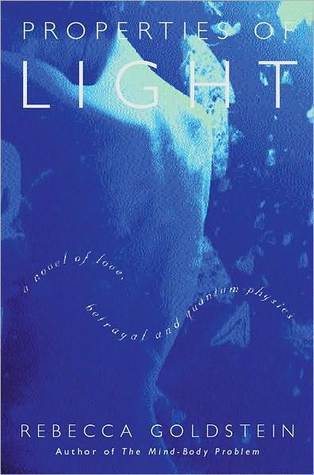What do you think?
Rate this book


260 pages, Kindle Edition
First published January 1, 2000
--I've been thinking about quantum nonlocality.(p 123)
--So have I, Daddy. What about you, Justin? What have you been thinking about?
--I thought you learned something about Proust from your mother. Didn't she teach you that lovers make each other up? Every lover is an artist, every love object a construct of the imagination. You've been making me up all along.(p 138)
I felt at a loss at her words, I felt a loss. Something essential was being stolen from me, snatched out of me before my eyes, and a shadow of my hurt must have shown itself. A softness moved over her face, despite the brutal impact of her words, that slight hard hiss:
--It's all right to make me up. You have my consent. You have my active support.